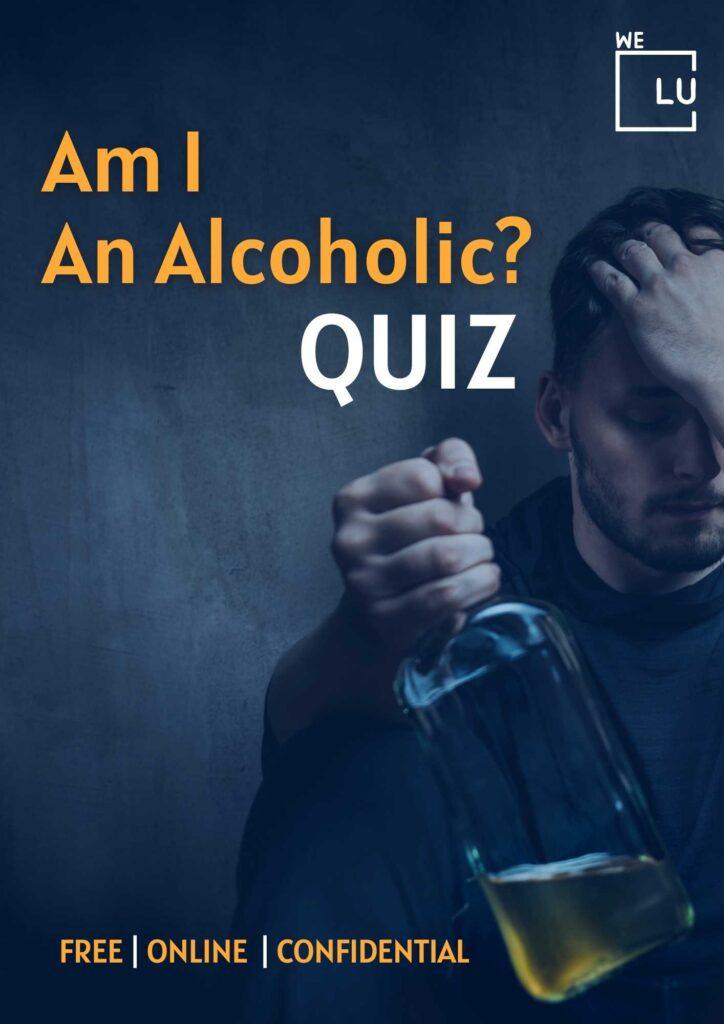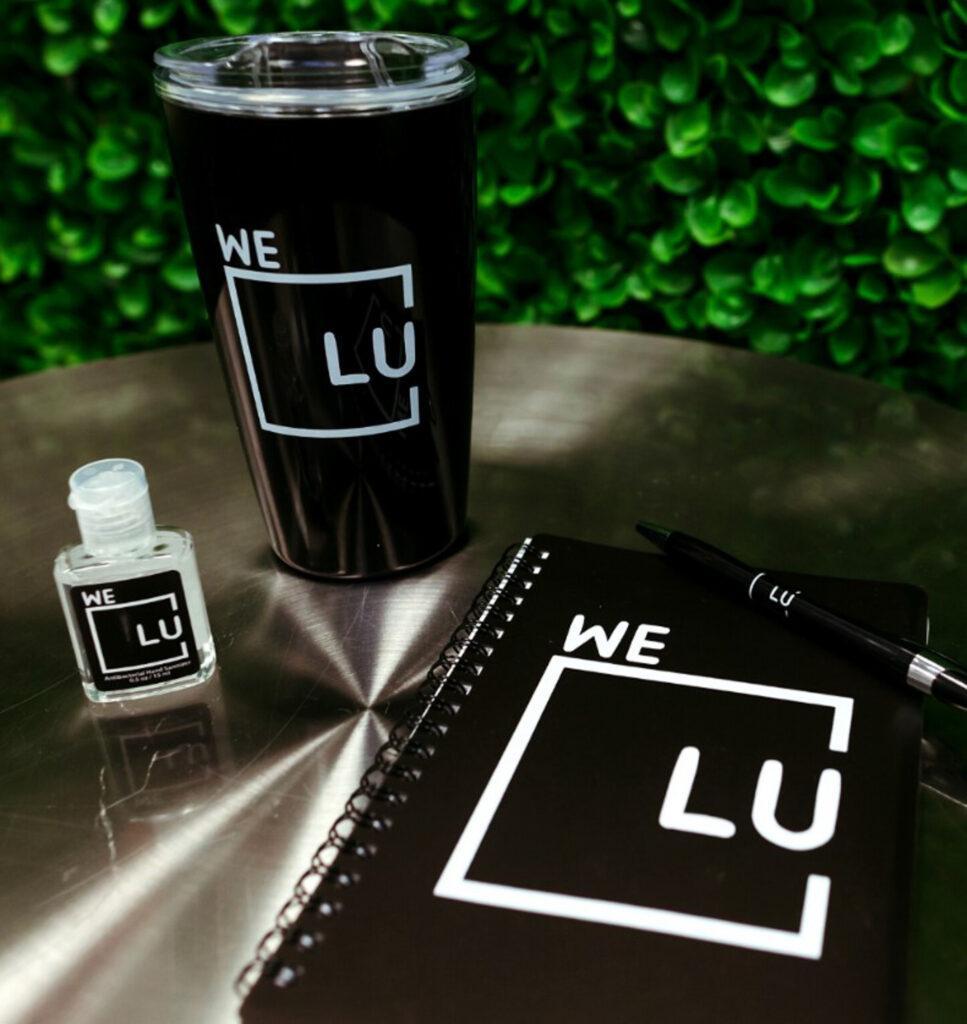Alcohol Rehab NJ
The journey to recovery from alcohol addiction is a profound and life-altering one. For those seeking assistance in overcoming the challenges of alcohol dependence, finding the right path to recovery is crucial. In Garden State, New Jersey, individuals grappling with alcohol addiction have access to various resources and support systems designed to help them regain control of their lives. This article aims to guide you on your path to recovery by helping you find the best alcohol rehab centers in New Jersey and exploring the various treatments available at these facilities.
Alcohol addiction is a complex and often debilitating condition that affects millions of Americans. Fortunately, there is hope, and recovery is possible with the right assistance and support. New Jersey boasts a network of reputable alcohol rehab centers that provide evidence-based treatments and compassionate care to individuals seeking to break free from the chains of alcoholism.
Our team at We Level Up comprises Alcohol Rehab NJ experienced and compassionate professionals committed to guiding you through the recovery process.
Cost of Rehab in New Jersey
The cost of rehab in New Jersey varies widely depending on several factors. For outpatient programs typically involving therapy sessions and counseling, costs can range from a few hundred to a couple of thousand dollars per month. Inpatient or residential treatment programs, which provide round-the-clock care, accommodation, and meals, are more expensive, ranging from $5,000 to $25,000 or more monthly. Luxury rehab facilities with upscale amenities may charge even higher rates. However, it’s essential to remember that health insurance can significantly offset these costs.
Many insurance plans provide coverage for substance abuse treatment, including rehab services. It’s advisable to contact your insurance provider to understand your coverage and potential out-of-pocket expenses. Additionally, some rehab centers offer financial assistance or sliding-scale fees to make treatment more accessible to those with limited financial means. Ultimately, the cost of rehab should be weighed against the potential benefits of recovery and the value of regaining a healthy, addiction-free life.


Skip To:
Learn More:
- Find a Drug Rehab New Jersey Near You. Addiction Treatment Centers New Jersey.
- Free Online Drug And Alcohol Tests, Quizzes, & Assessments
- Online Confidential Am I An Alcoholic Quiz For Free
- Essex County, New Jersey
- Bloomfield, New Jersey
- Trenton, New Jersey
- Secaucus, New Jersey
- Newark, New Jersey
- Morristown, New Jersey
- Hoboken, New Jersey
- Hackensack, New Jersey
- East Orange, New Jersey
Alcohol Rehab NJ Fact Sheet
Alcohol Addiction Prevalence:
- Alcohol use disorder (AUD), commonly known as alcohol addiction, affects millions of individuals in the United States and worldwide.
- In 2019, approximately 14.5 million adults aged 18 and older in the United States had AUD, according to the National Institute on Alcohol Abuse and Alcoholism (NIAAA).
Health Implications:
- Excessive alcohol consumption can lead to a wide range of health problems, including liver disease, cardiovascular issues, and an increased risk of certain cancers.
- Alcohol addiction can also contribute to mental health disorders like depression and anxiety.
Medical Detox:
- Medical detox is often the first step in alcohol addiction treatment, involving supervised withdrawal in a medical setting.
- Medications may be prescribed to manage withdrawal symptoms and reduce cravings.
Inpatient Rehab:
- Inpatient rehab programs provide 24/7 care within a residential facility, offering intensive therapy and support.
- They are suitable for individuals with moderate to severe addiction.
Outpatient Rehab:
- Outpatient rehab allows individuals to attend treatment while living at home.
- It’s a flexible option for those with mild to moderate addiction.

Get Your Life Back
Find Hope & Recovery. Get Safe Comfortable Detox, Addiction Rehab & Dual Diagnosis High-Quality Care.
Hotline (201) 685-2484Alcohol Rehab Statistics
These statistics offer insights into the demand for alcohol rehab services, the demographics of those seeking help, and the success rates of treatment programs. By analyzing these figures, we can better understand the impact of alcohol addiction on individuals, families, and communities throughout the state.
- Prevalence of Alcohol Use Disorder (AUD): In 2019, approximately 14.5 million adults aged 18 and older in the United States had AUD, according to the National Institute on Alcohol Abuse and Alcoholism (NIAAA).
- Alcohol-Related Deaths: Excessive alcohol consumption resulted in approximately 95,000 deaths attributed to alcohol-related causes, including alcohol poisoning, liver disease, and accidents in 2019.
- Age of Onset: AUD often begins in young adulthood, with approximately 6.2% of adults aged 18-25 experiencing AUD in 2019.
141,000
140,557 Americans die from the effects of alcohol in an average year.
Source: NIAAA
10%
1-in-10 Americans over the age of 12 have an Alcohol Use Disorder.
Source: NIAAA
60%
Over half of Americans increased their alcohol consumption during COVID-19 lockdowns.
Source: NIAAA
Treatments Available for Alcohol Rehab New Jersey
Alcohol rehab programs in New Jersey offer a range of evidence-based treatments and therapeutic approaches to help individuals overcome alcohol addiction. The specific treatments available can vary from one rehab center to another, but here are some common and effective treatments you can expect to find:
- Medical Detoxification (Detox): The first step in alcohol rehab is often medical detox. It involves supervised withdrawal from alcohol to manage potentially dangerous withdrawal symptoms. Medical professionals may provide medications and around-the-clock care to make the process safer and more comfortable.
- Individual Counseling: One-on-one therapy sessions with trained counselors or therapists can help individuals explore the underlying causes of their alcohol addiction, develop coping strategies, and set personal goals for recovery.
- Group Therapy: Group therapy sessions allow individuals in rehab to share their experiences, provide support, and learn from others facing similar challenges. Group therapy can foster a sense of community and provide valuable insights and encouragement.
- Family Therapy: Family therapy involves the participation of family members and loved ones in the recovery process. It helps improve communication, address family dynamics, and build a supportive environment for the individual in recovery.
- Cognitive-Behavioral Therapy (CBT): CBT is a widely used therapeutic approach that helps individuals identify and change negative thought patterns and behaviors associated with alcohol addiction. It teaches coping skills and strategies to prevent relapse.
- Motivational Enhancement Therapy (MET): MET is a counseling approach that focuses on increasing an individual’s motivation to change and commit to recovery. It often involves setting and achieving goals related to sobriety.
- Dialectical Behavior Therapy (DBT): DBT combines cognitive-behavioral techniques with mindfulness practices to help individuals regulate emotions, improve interpersonal relationships, and manage stress without turning to alcohol.
- 12-Step Programs: Many alcohol rehab centers incorporate 12-step programs like Alcoholics Anonymous (AA) or similar models into their treatment plans. These programs emphasize fellowship, support, and a structured approach to recovery.
- Holistic Therapies: Some rehab centers offer holistic therapies such as yoga, meditation, art therapy, and acupuncture as complementary treatments to address the physical, emotional, and spiritual aspects of addiction recovery.
- Medication-Assisted Treatment (MAT): For individuals with severe alcohol addiction, medications like naltrexone, disulfiram, or acamprosate may be prescribed to reduce cravings and maintain sobriety.
- Aftercare and Relapse Prevention: Effective alcohol rehab programs provide aftercare planning and support to help individuals transition back into their daily lives while minimizing the risk of relapse. Aftercare may include ongoing counseling, support groups, or sober living arrangements.
It’s important to note that the combination of treatments and their duration can vary based on individual needs and the severity of alcohol addiction. When seeking treatment in New Jersey, it’s advisable to consult with professionals at rehab centers to assess your specific situation and create a personalized treatment plan tailored to your recovery goals.
Duration of Rehab in New Jersey
The duration of rehab in New Jersey can vary widely based on several factors, including the type of treatment program and the individual’s specific needs. Inpatient or residential rehab programs typically range from 28 days to 90 days or even longer, with the length of stay often dependent on the severity of the addiction and the progress made during treatment. Detoxification (detox) timelines vary depending on the substance involved and the individual’s withdrawal symptoms.
After completing a formal rehab program, individuals often continue with aftercare and continuing care services, which may extend indefinitely based on their ongoing needs. The ideal duration of rehab is determined on a case-by-case basis, with treatment plans adjusted to ensure individuals receive the appropriate level of care and support for their recovery journey. It’s crucial to consult with addiction treatment professionals to determine the most suitable duration for your specific situation and goals.

Get Help. Get Better. Get Your Life Back.
Searching for Accredited Drug and Alcohol Rehab Centers Near You?
Even if you have failed previously and relapsed, or are in the middle of a difficult crisis, we stand ready to support you. Our trusted behavioral health specialists will not give up on you. When you feel ready or just want someone to speak to about therapy alternatives to change your life call us. Even if we cannot assist you, we will lead you to wherever you can get support. There is no obligation. Call our hotline today.
(201) 685-2484Benefits of Alcohol Rehab New Jersey
Alcohol rehab in New Jersey offers numerous benefits to individuals struggling with alcohol addiction. These benefits extend to both the physical and psychological aspects of recovery, as well as overall well-being. Here are some key advantages of seeking alcohol rehab in New Jersey:

- Professional medical supervision during detox.
- Customized treatment plans tailored to individual needs.
- Therapeutic support through various evidence-based therapies.
- A safe and supportive environment to focus on recovery.
- Peer support and a sense of community.
- Access to holistic therapies for a holistic approach to recovery.
- Dual diagnosis treatment for co-occurring mental health conditions.
- Education and relapse prevention strategies.
- Aftercare planning and ongoing support.
- Improved physical health and overall well-being.
- Enhanced relationships with family and loved ones.
- Legal and financial stability.
- Increased self-esteem and self-efficacy.
- The opportunity for a fulfilling life free from addiction.
In summary, alcohol rehab in New Jersey provides a comprehensive and supportive environment for individuals seeking recovery. It addresses the physical, emotional, and psychological aspects of addiction and equips individuals with the tools and support they need to achieve and maintain sobriety while improving their overall quality of life.
How to Find the Best Alcohol Rehab NJ Near You
Finding the best alcohol rehab center in New Jersey near you can be a crucial step towards recovery. Here are some steps to help you identify and choose the right facility:
- Assess Your Needs: Begin by evaluating your specific needs and goals for recovery. Consider factors like the severity of your addiction, any co-occurring mental health issues, your preferred treatment approach (e.g., inpatient or outpatient), and any other personal preferences.
- Seek Recommendations: Reach out to your healthcare provider, therapist, or counselor for recommendations. They can provide valuable insights and suggest reputable rehab centers in your area. Friends and family may also have helpful suggestions.
- Research Online: Use online resources to research rehab centers in New Jersey. Look for facilities that specialize in alcohol addiction treatment and have a good reputation. Read reviews and testimonials from former clients, if available.
- Check Accreditation and Licensing: Ensure that the rehab center is accredited by reputable organizations such as the Commission on Accreditation of Rehabilitation Facilities (CARF) or The Joint Commission. This indicates that the facility meets specific quality and safety standards.
- Verify Licensing and Credentials: Confirm that the facility and its staff have the necessary licenses and credentials to provide addiction treatment services. Licensed professionals should oversee your care.
- Assess Treatment Approaches: Understand the treatment approaches and therapies offered by each facility. Look for evidence-based practices that align with your needs. Consider whether they offer a holistic approach that addresses the physical, emotional, and psychological aspects of addiction.
- Insurance Coverage: Check if the rehab center accepts your health insurance plan. This can significantly reduce your out-of-pocket expenses. Contact your insurance provider to verify coverage details.
- Visit the Facility: Whenever possible, schedule a visit to the rehab center to assess its environment, cleanliness, and amenities. Speak with staff members to get a sense of their expertise and approach to treatment.
- Ask Questions: Prepare a list of questions to ask rehab center staff. Inquire about their treatment methods, success rates, aftercare services, and what a typical day in the program looks like.
- Consider Location: Decide whether you prefer a rehab center near your home or if you’re open to traveling. Some individuals find it beneficial to be closer to loved ones, while others prefer a more distant location for a fresh start.
- Evaluate Cost: Discuss the cost of treatment with the rehab center and explore your payment options. Inquire about any financial assistance or sliding-scale fees they may offer.
- Review Treatment Plans: Request information on the individualized treatment plans they create for clients. Ensure they will tailor the program to address your specific needs.
- Seek Input from Others: If you’re unsure about a particular rehab center, seek advice from addiction professionals, therapists, or support groups. They may offer valuable insights.
By following these steps and thoroughly researching your options, you can make an informed decision when choosing the best alcohol rehab center in New Jersey near you. Remember that the right rehab center is one that aligns with your needs and provides the support necessary for your journey to recovery.
First-class Facilities & Amenities
World-class High-Quality Addiction & Mental Health Rehabilitation Treatment
Rehab Centers TourRenowned Addiction Centers. Serene Private Facilities. Inpatient rehab programs vary.
Addiction Helpline (201) 685-2484Proven recovery success experience, backed by a Team w/ History of:
15+
Years of Unified Experience
100s
5-Star Reviews Across Our Centers
10K
Recovery Success Stories Across Our Network
- Low Patient to Therapist Ratio
- Onsite Medical Detox Center
- Comprehensive Dual-Diagnosis Treatment
- Complimentary Family & Alumni Programs
- Coaching, Recovery & Personal Development Events
Inpatient Rehab New Jersey
Inpatient rehab in New Jersey offers individuals struggling with alcohol addiction a comprehensive and structured approach to recovery. This intensive level of care involves residing at a treatment facility for a specified period, typically ranging from 28 days to several months, allowing individuals to focus solely on their recovery journey. Inpatient rehab provides several advantages, including 24/7 medical supervision during detox, a safe and supportive environment that minimizes exposure to triggers, and access to a wide range of evidence-based therapies and counseling.
These programs are tailored to address individual needs and often include individual and group therapy, dual diagnosis treatment for co-occurring mental health issues, and aftercare planning to support long-term sobriety. Inpatient rehab in New Jersey equips individuals with the tools and strategies needed to break free from the cycle of addiction and offers a strong foundation for a healthier, alcohol-free life.
Dual Diagnosis Rehab NJ
Dual diagnosis rehab in New Jersey provides specialized treatment for individuals grappling with both substance abuse and co-occurring mental health disorders. This integrated approach recognizes the complex interplay between addiction and mental health issues and addresses both simultaneously. In dual diagnosis rehab programs, individuals receive comprehensive assessments to identify underlying mental health conditions, such as depression, anxiety, bipolar disorder, or PTSD.
Treatment plans are then tailored to address both addiction and these co-occurring disorders. Dual diagnosis rehab typically combines evidence-based therapies, psychiatric care, medication management, and counseling to provide a holistic approach to recovery. By addressing both the addiction and the underlying mental health issues, dual diagnosis rehab in New Jersey helps individuals achieve lasting recovery and improved mental well-being, offering a path towards a more fulfilling and balanced life.
Aftercare Support in Rehab Centers in NJ
Aftercare support is a critical component of alcohol rehab in New Jersey, providing individuals with the tools and resources they need to maintain sobriety and navigate life outside of the treatment center. Rehab centers in NJ recognize the importance of a continuum of care and typically offer comprehensive aftercare programs. These programs may include:
- Continued Counseling: Aftercare often involves ongoing individual and group counseling sessions. These sessions help individuals address challenges, manage cravings, and reinforce the coping skills learned during rehab.
- Relapse Prevention Planning: Rehab centers assist individuals in developing personalized relapse prevention plans. These plans include strategies to identify and cope with triggers and high-risk situations to reduce the risk of relapse.
- Medication Management: For individuals prescribed medications to support their recovery, aftercare includes ongoing medication management to ensure the appropriate use of medications and monitor their effectiveness.
- Education and Skill Building: Aftercare may involve additional education on addiction and relapse prevention and skill-building workshops to help individuals navigate real-world challenges.
- Family Involvement: Family therapy or support may continue in aftercare to address ongoing family dynamics and relationships, fostering a healthier and more supportive environment.
- Regular Check-Ins: Aftercare programs often schedule regular check-ins or follow-up appointments to monitor progress and adjust the treatment plan as needed.
- Crisis Intervention: In case of a crisis or emergency, individuals in aftercare have access to immediate support and guidance from rehab center staff.
- Sober Living Arrangements: Some individuals may transition to a sober living environment as part of their aftercare plan, providing a structured and supportive living environment as they reintegrate into daily life.
- Community Resources: Rehab centers may connect individuals with community resources and services, such as vocational training, educational programs, or legal assistance, to support their recovery and overall well-being.
Aftercare support recognizes that recovery is an ongoing process, and individuals may face challenges in the months and years following rehab. By providing a range of services and resources, rehab centers in New Jersey aim to empower individuals to maintain their sobriety, improve their quality of life, and build a foundation for long-term recovery.
World-class, Accredited, 5-Star Reviewed, Effective Addiction & Mental Health Programs. Complete Behavioral Health Inpatient Rehab, Detox plus Co-occuring Disorders Therapy.
CALL (201) 685-2484End the Addiction Pain. End the Emotional Rollercoaster. Get Your Life Back. Start Drug, Alcohol & Dual Diagnosis Mental Health Treatment Now. Get Free No-obligation Guidance by Substance Abuse Specialists Who Understand Addiction & Mental Health Recovery & Know How to Help.
Popular Alcohol Rehab NJ FAQs
-
Does insurance cover alcohol rehab in New Jersey?
Many insurance plans offer coverage for substance abuse treatment, including alcohol rehab. It’s important to check with your insurance provider to understand your coverage.
-
What happens during the detox process?
Detox involves the supervised withdrawal from alcohol to manage withdrawal symptoms safely. Medical professionals may provide medications and support to make the process more comfortable.
-
What is aftercare, and why is it important?
Aftercare refers to the ongoing support and resources provided to individuals after completing rehab. It helps maintain sobriety and prevent relapse in the transition to daily life.
Experience Transformative Recovery at the We Level Up Treatment Center.
See our authentic success stories. Get inspired. Get the help you deserve.
Experience Transformative Recovery at We Level Up Treatment Centers.
See our authentic success stories. Get inspired. Get the help you deserve.
Start a New Life
Begin with a free call to an addiction & behavioral health treatment advisor. Learn more about our dual-diagnosis programs. The We Level Up Treatment Center Network delivers recovery programs that vary by each treatment facility. Call to learn more.
- Personalized Care
- Caring Accountable Staff
- World-class Amenities
- Licensed & Accredited
- Renowned w/ 100s 5-Star Reviews
We’ll Call You
Powerful Video Overcoming Prescription Drug Abuse
Jen’s Addiction Recovery Story
Reclaiming My Life: Overcoming Addiction and Rebuilding Relationships
I longed for my old life, but addiction had turned me into a mere shell of myself. I yearned to regain the trust of my loved ones, especially my children and family. It all started innocently enough, with a car accident followed by getting caught up in the murky world of prescription medication. Before I knew it, I was trapped in a fog of addiction. My mind justified it, telling me it was okay because a doctor prescribed it.
Little did I realize, I was spiraling down a dangerous path. Thankfully, Level Up came into my life, providing support for my family and nurturing my personal growth. When I first walked through their doors, I was filled with fear and intimidation. However, their guidance and teachings have empowered me to discover my true self. And now, receiving a midday call from my twenty-one-year-old daughter, simply saying “I love you, Mom,” is nothing short of incredible.
Jen’s Addiction Recovery Testimonial
Search Alcohol Rehab NJ We Level Up Alcohol Poisoning Detox, Mental Health Topics & Resources
Sources
[1] NCBI – Heslin KC, Elixhauser A, Steiner CA. Hospitalizations Involving Mental and Substance Use Disorders Among Adults, 2012. 2015 Jun. In: Healthcare Cost and Utilization Project (HCUP) Statistical Briefs [Internet]. Rockville (MD): Agency for Healthcare Research and Quality (US); 2006 Feb-. Table 3, https://www.ncbi.nlm.nih.gov/books/NBK310986/table/sb191.t3/
[2] NCBI – https://pubmed.ncbi.nlm.nih.gov/22751995/ – mental health inpatient facility near me – Lee S, Rothbard AB, Noll EL. Length of inpatient stay of persons with serious mental illness: effects of hospital and regional characteristics. Psychiatr Serv. 2012 Sep 1;63(9):889-95. doi: 10.1176/appi.ps.201100412. PMID: 22751995.
[3] Depression Treatment » Drug Alcohol Addiction Rehab
[5] NIMH – https://www.nimh.nih.gov/health/publications/social-anxiety-disorder-more-than-just-shyness
[6] Selective Serotonin Reuptake Inhibitors – National Center for Biotechnology Information, U.S. National Library of Medicine
[7] ‘Anxiety Disorders’ – National Institute Of Mental Health (Nimh.nih.gov)
[8] Psychopharmacology of anxiety disorders – National Center for Biotechnology Information, U.S. National Library of Medicine
[9] Products – Data Briefs – Number 379 – September 2020 (cdc.gov) Depression – National Institute of Mental Health
[10] Coping with Stress – Centers for Disease Control and Prevention








